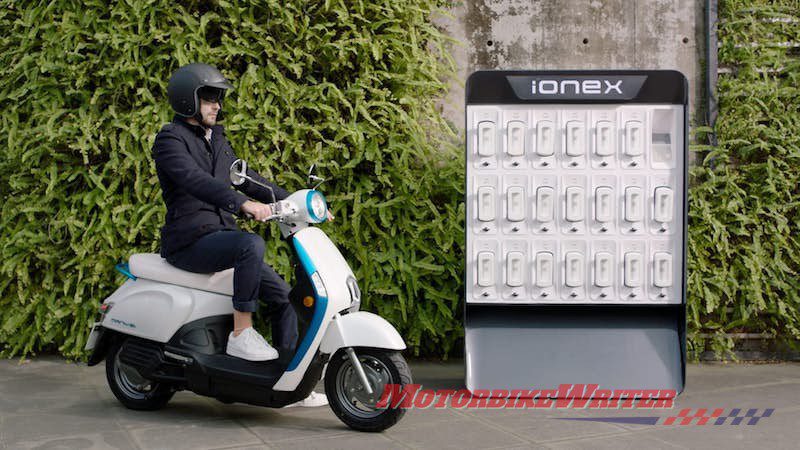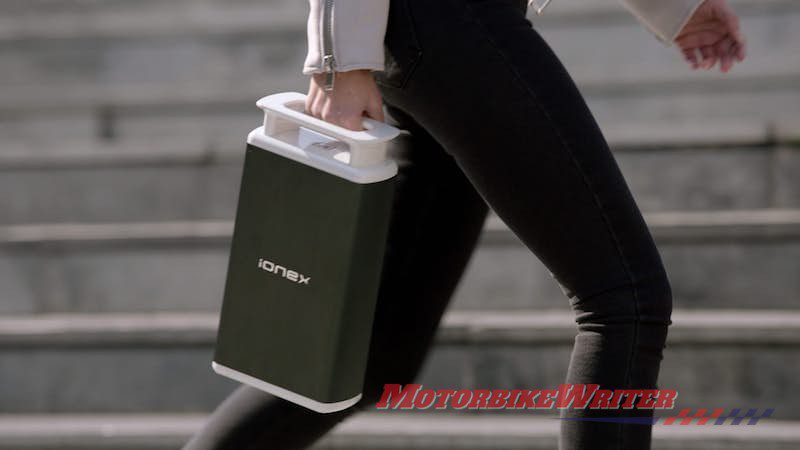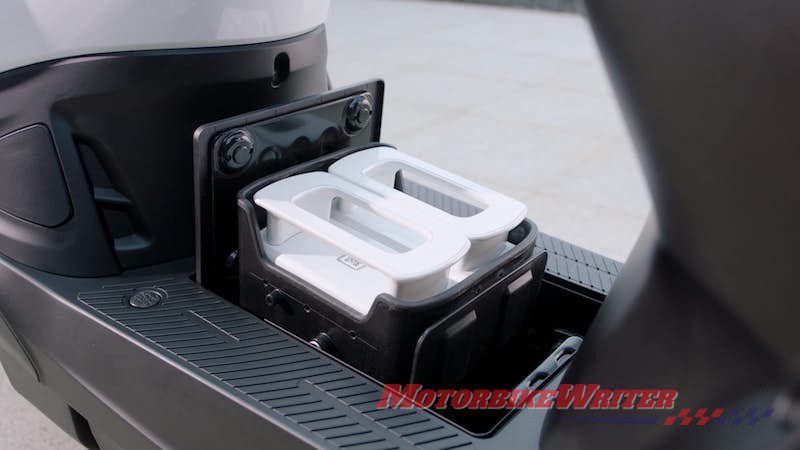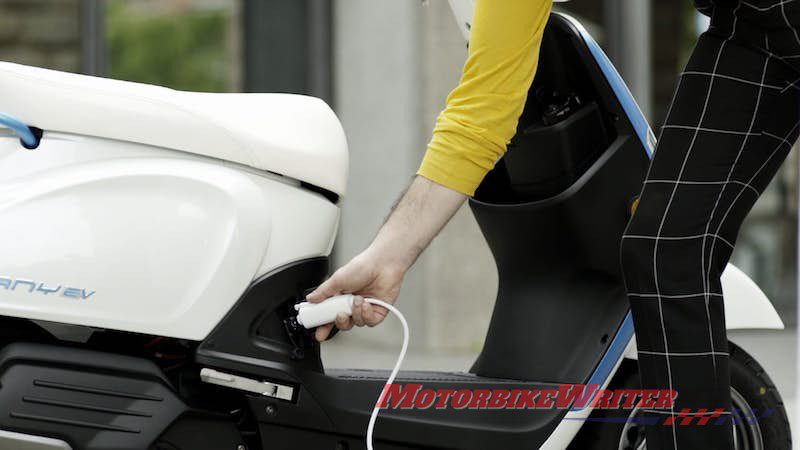Battery swap vending machines could be the key to the introduction of electric vehicles with long charging times, according to Taiwanese scooter manufacturer Kymco.
The idea is not new. British company Battery Traction Ltd came up with the idea in 1938, but it was sidelined by World War II.
Better Place also suggested the idea in 2008 and went broke in 2013.
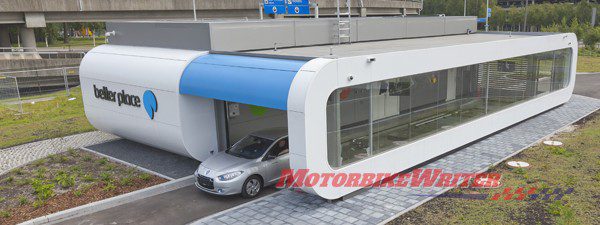
Car companies dabbled with the idea, but have largely canned it because their batteries are too big.
However, Tesla has patented a robot that can charge an electric car’s battery in 15 minutes and some small electric city cars can swap batteries in under a minute.
Standard battery swap size
Electric motorcycles and scooters need far smaller batteries, so a quick battery swap system for two-wheelers could still be likely.
The biggest hurdle is that the entire motorcycle industry would need to agree on one standard size and type of battery.
Since battery technology is developing at a rapid pace, especially decreasing in size, a standardise battery size would become obsolete in just a few years.
This doesn’t perturb Kymco which has just launched their Ionex electric scooter at the 2018 Tokyo Motorcycle Show with two swappable batteries.
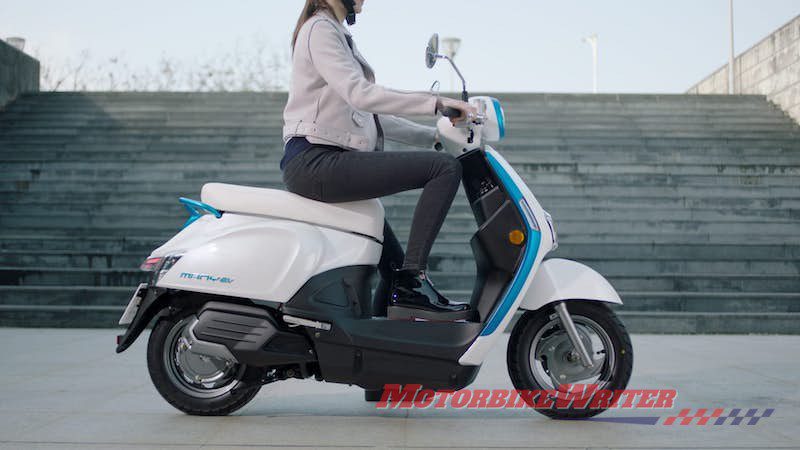
They suggest multiple small batteries would get around the battery size issue. However, their batteries are still quite big – about the size and weight of a 1990s laptop (about 5kg).
The Ionex is powered by two batteries stored under the floor pan. Each battery is good for about 30-40km.
Kymco says riders can also rent up to three extra batteries and store them in the underseat compartment, extending range to 200km.
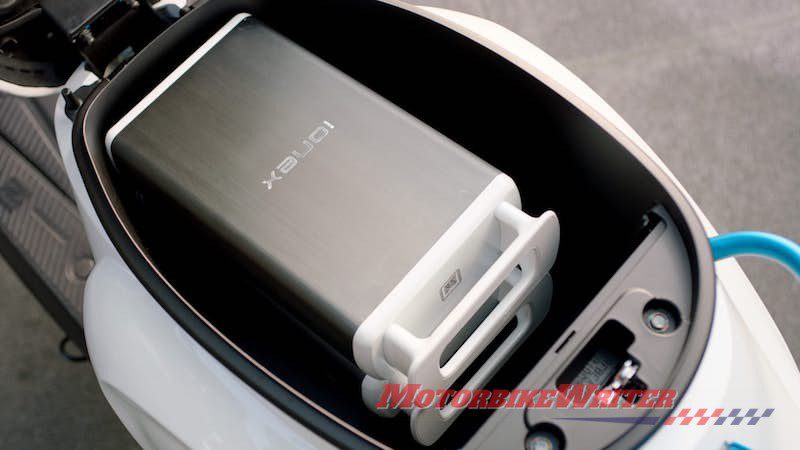
But then you lose the advantage of underseat storage for your helmet, jacket and gloves.
The Ionex can also be charged by plugging the scooter into a power outlet or plugging each battery into a portable charger you can have at home or work.
Chairman Alan Ko says they will launch 10 electric models in the next three years, establish their own charge battery-swapping networks in 20 countries and sell more half a million electric vehicles worldwide.
“With the Ionex, together we start an open movement that celebrates one of the most important social missions of our time,” he says.
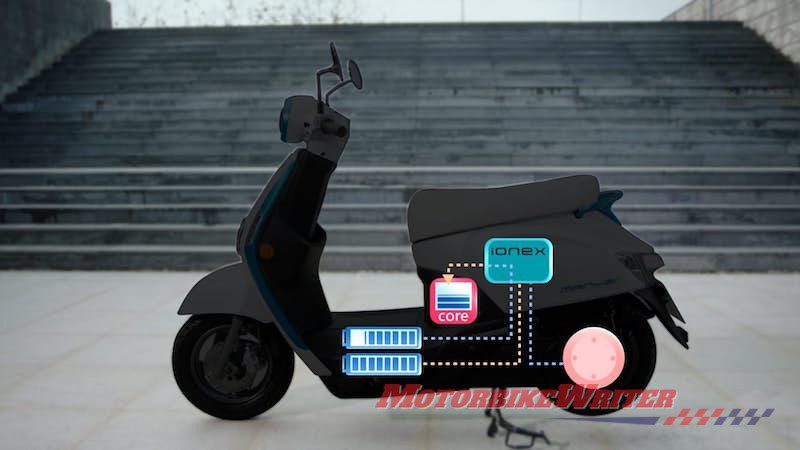
Infrastructure hurdle
There is also the problem of the expense of infrastructure to provide vending machines in enough places to make it workable.
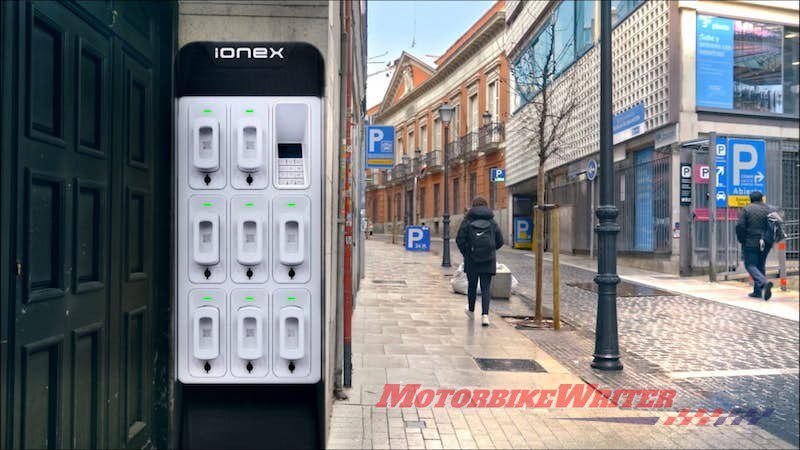
It may work in large cities, but would be impossible to get adequate con ergo in a large country such as Australia.
Kymco isn’t the first scooter company to suggest battery swap technology.
San Francisco company Scoot has about 700 electric scooters for short-term hire.
Now they are looking at moving into small cars with swappable batteries.


